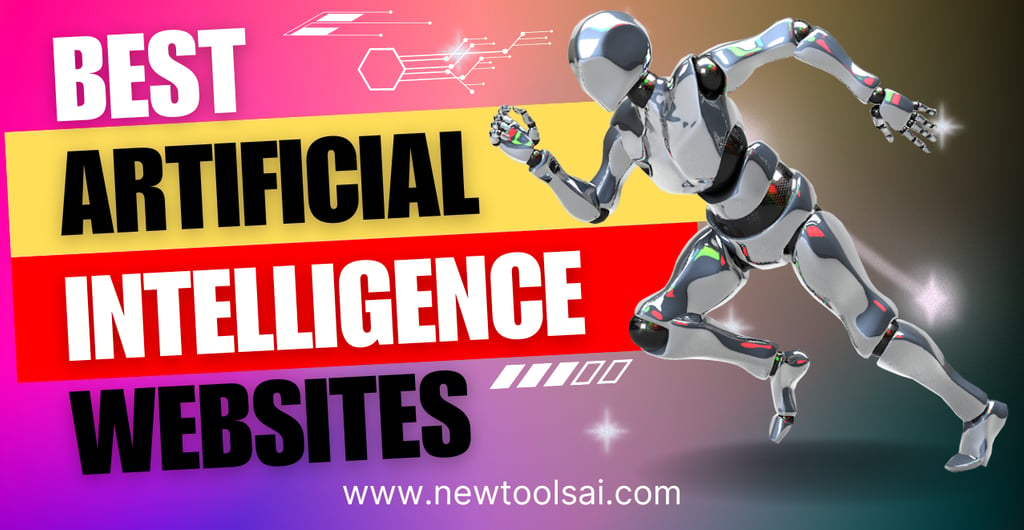

AI Tools:
Revolutionizing the Future of Automation
Introduction
In today's rapidly advancing technological landscape, artificial intelligence (AI) has emerged as a powerful tool, transforming industries and revolutionizing our work. AI tools have become indispensable, providing businesses with innovative solutions to streamline operations, enhance productivity, and drive growth. This article explores how AI tools reshape industries and propel organizations toward a more efficient and competitive future.
Embracing Automation with AI Tools
OpenAI: OpenAI provides various AI tools and models, including GPT (Generative Pre-trained Transformer) for natural language processing tasks, reinforcement learning algorithms, and more. Their models excel in generating human-like text and have applications in chatbots, content creation, and language translation. Visit OpenAI at https://openai.com.
Google Cloud AI: Google Cloud AI offers a comprehensive suite of AI tools and services. It includes pre-trained machine learning models for vision, language, and speech tasks. It also provides AutoML, allowing users to build custom machine-learning models without extensive coding knowledge. Explore Google Cloud AI at https://cloud.google.com/ai.
IBM Watson: IBM Watson is a powerful AI platform offering many tools and services. It provides AI-powered solutions for natural language understanding, chatbots, speech recognition, and image recognition. Watson Studio allows users to build and deploy AI models using popular frameworks. Discover IBM Watson at https://www.ibm.com/watson.
Microsoft Azure AI: Microsoft Azure AI offers various AI tools and services. It includes pre-built AI models for vision, language, and speech tasks. Azure Cognitive Services enables developers to integrate AI capabilities into applications easily. Azure Machine Learning allows users to build, deploy, and manage machine learning models at scale. Explore Microsoft Azure AI at https://azure.microsoft.com/ai.
Amazon AI: Amazon AI provides various tools and services for machine learning and AI. Amazon SageMaker allows users to build, train, and deploy machine learning models at scale. Amazon Rekognition offers powerful image and video analysis capabilities, and Amazon Comprehend provides natural language processing functionalities. Learn more about Amazon AI at https://aws.amazon.com/ai.
AI tools have proven to be game-changers in boosting efficiency and productivity. Organizations can free up valuable time and resources by automating repetitive tasks and complex processes, allowing employees to focus on more strategic initiatives. These tools can analyze vast amounts of data at an unprecedented speed, extracting valuable insights and facilitating data-driven decision-making. With AI tools, businesses can achieve higher levels of accuracy, eliminate human errors, and significantly reduce operational costs.
Empowering Creativity and Innovation
TensorFlow: TensorFlow is an open-source machine learning framework developed by Google. It provides a flexible platform for building and deploying machine learning models across various domains. TensorFlow offers many tools and libraries for tasks like image recognition, natural language processing, and more. Visit TensorFlow at https://www.tensorflow.org.
PyTorch: PyTorch is another popular open-source machine learning framework known for its dynamic and intuitive nature. It provides a flexible platform for building deep learning models focusing on neural networks. PyTorch offers rich libraries and tools for tasks like computer vision, natural language processing, and more. Explore PyTorch at https://pytorch.org.
H2O.ai: H2O.ai offers an open-source AI platform that simplifies the process of building and deploying machine learning models. It provides automatic machine-learning capabilities, making it easy for users to create models without extensive manual configuration. H2O.ai supports various algorithms and integrations with popular data science tools. Learn more about H2O.ai at https://www.h2o.ai.
AI tools empower professionals by automating mundane and repetitive tasks, allowing them to focus on creative and strategic endeavors. These tools assist in generating fresh ideas, identifying patterns, and predicting trends, enabling businesses to stay one step ahead of their competition.
Streamlining Customer Experience
Microsoft Azure Cognitive Services: Microsoft Azure Cognitive Services provides various AI tools for natural language understanding, sentiment analysis, and personalized recommendations. These tools enable businesses to analyze customer feedback, sentiment, and preferences, tailoring their products and services accordingly. Visit Microsoft Azure Cognitive Services at https://azure.microsoft.com/cognitive-services.
Delivering exceptional customer experience is paramount for any successful business. AI tools have revolutionized how organizations interact with their customers, providing personalized and seamless experiences at scale. Through natural language processing (NLP) and machine learning algorithms, AI tools can analyze customer feedback, sentiment, and preferences, enabling businesses to tailor their products and services accordingly. Chatbots and virtual assistants powered by AI have become invaluable in providing instant support and resolving customer queries promptly, ultimately leading to increased customer satisfaction and loyalty.
Industries Transformed by AI Tools
Healthcare
IBM Watson Health: IBM Watson Health leverages AI tools to revolutionize patient care, diagnosis, and treatment. Machine learning algorithms analyze medical records, genetic data, and clinical trials, aiding in early disease detection and personalized treatment plans. IBM Watson Health transforms healthcare at https://www.ibm.com/watson/health.
AI tools have revolutionized patient care, diagnosis, and treatment in the healthcare industry. Machine learning algorithms analyze medical records, genetic data, and clinical trials, aiding early disease detection and developing personalized treatment plans. AI-powered robotic surgical systems enable surgeons to perform complex procedures with greater precision and minimal invasiveness. Furthermore, AI tools are being utilized to accelerate drug discovery, reduce research and development timelines, and optimize healthcare operations.
Finance
Google Cloud AI for Finance: Google Cloud AI offers AI tools specifically tailored for the finance industry. These tools leverage machine learning algorithms to analyze financial data, make accurate predictions, and provide personalized financial advice. Discover Google Cloud AI for Finance at https://cloud.google.com/ai/finance.
AI tools have profoundly impacted the finance industry, revolutionizing various banking, investments, and risk management aspects. Machine learning algorithms analyze vast financial datasets, identify patterns, and make accurate predictions, facilitating more informed investment decisions. Banks use AI-powered chatbots to provide personalized financial advice and assist customers with inquiries. Additionally, AI tools are employed in fraud detection and prevention, enabling financial institutions to mitigate risks and enhance security.
Manufacturing
NVIDIA Deep Learning for Manufacturing: NVIDIA Deep Learning provides AI tools specifically designed for manufacturing. These tools enable automation, predictive maintenance, and optimization of manufacturing operations. Explore NVIDIA Deep Learning for Manufacturing at https://www.nvidia.com/deep-learning/manufacturing.
The manufacturing industry has experienced a significant transformation by integrating AI tools. AI-powered robots and automation systems have revolutionized the assembly line, improving production efficiency, quality control, worker safety, predictive maintenance, real-time analytics, supply chain optimization, demand forecasting, and inventory management.
Production efficiency, quality control, and worker safety. Machine learning algorithms can analyze sensor data in real-time, predicting equipment failures and optimizing maintenance schedules, thereby minimizing downtime and maximizing productivity. Furthermore, AI tools enable predictive inventory management, demand forecasting, and supply chain optimization, reducing costs and enhancing overall operational efficiency.
The Future of AI Tools
The potential of AI tools is boundless, and we are only scratching the surface of what is possible. As AI advances, we can expect even more sophisticated tools that push the boundaries of automation and intelligence. Natural language processing and understanding will become even more advanced, allowing AI tools to interpret human language more accurately. Machine learning algorithms will become more efficient, enabling faster and more precise data analysis. Furthermore, AI tools will increasingly be integrated with other emerging technologies, such as the Internet of Things (IoT), robotics, and virtual reality, creating a robust ecosystem of interconnected intelligent systems.
Conclusion
AI tools have ushered in a new era of automation, transforming industries and propelling businesses toward unprecedented growth. From enhancing efficiency and productivity to empowering creativity and innovation, these tools have become indispensable in today's competitive landscape. By leveraging AI tools, organizations can streamline operations, deliver exceptional customer experiences, and gain a competitive edge in their respective industries. As we look ahead to the future, it is evident that AI tools will continue to shape the world, driving innovation and revolutionizing how we live and work.
Visit the websites of these AI tools to explore their full range of features, use cases, and resources. Embrace the power of AI and unlock new possibilities for your organization's success.
